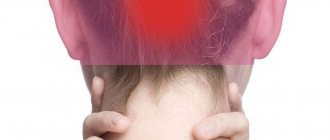Should you worry if you can't sleep? Why is this happening? How can you adjust your lifestyle to ensure healthy sleep? We tell you together with doctors who deal with sleep disorders.
Insomnia refers to various phenomena: difficulty falling asleep, systematic awakenings in the middle of the night and inability to fall asleep again, shallow sleep. This problem plagues about a third of the world's population. Chronic insomnia, lasting more than a week, always leads to a sharp deterioration in the quality of life, decreased performance, and drowsiness during the day.
When is it time to sound the alarm?
“If the process of falling asleep lasts more than 20 minutes, and this situation lasts a week or more, this is a reason to consult a doctor,” says Gleb Lutokhin, a somnologist at the Semeynaya clinic. — If a person tosses and turns for a long time before going to bed, often wakes up during sleep and then cannot fall back to sleep for 5-10 minutes, this is a reason to think about it. Especially if these processes are accompanied by anxiety and obsessive thoughts.”
Insomnia has many adverse effects. The body does not have time to recover, the functioning of almost all systems and organs is disrupted. The nervous system suffers the most; the cardiovascular and endocrine systems, as well as the kidneys, work under stress.
“About 40% of my patients have a sleep disorder,” says GMS Clinic neurologist Sergei Makarov. — In young people, insomnia is a consequence of anxiety disorders or disruption of the daily routine. Due to the coronavirus epidemic, many people work from home until late and then sleep until lunch. And due to overexertion and lack of personal space, insomnia occurs. In older people, sleep disturbances can be caused by diseases of the heart, lungs, other internal organs, or chronic pain.”
So a young girl turned to Doctor Makarov. During the interview, it turned out that in addition to bad habits - smoking and drinking alcohol - she suffered from an incorrect daily routine. At night on weekends, the girl “hanged out” in bars and discos, sleeping off during the day. It is not surprising that the work week was difficult for the patient. The body did not have time to adapt to the daily routine when the weekend came again and history repeated itself.
How is insomnia treated?
Treatment for insomnia is carried out if a person, even having enough time and suitable conditions for comfortable sleep, still cannot sleep normally. Treatment methods are chosen by the doctor depending on the reason for which insomnia developed.
First, therapy is aimed at relieving nervous tension, relaxing the body, normalizing work and rest, and daily routine. The person is prescribed sports, walks in the fresh air, massages, and physiotherapeutic procedures with a relaxation effect. Often, a change of job, a change in familiar surroundings, and the purchase of quality bedding help in the fight against insomnia.
If you cannot restore sleep using these methods, then the doctor prescribes medications - sleeping pills or tranquilizers. At the same time, the patient can attend physiotherapeutic procedures, xenon therapy, and engage in light physical exercise.
Write to WhatsApp
COST OF TREATMENT
If the cause of insomnia is a psychological factor, then it is necessary to work through the problem with a psychotherapist or psychologist. Cognitive and imagery therapy is considered the most effective in treating insomnia. These methods make it possible to convey to the patient the need and importance of healthy, full sleep and its impact on human health. The psychotherapist eliminates the cause of anxiety and nervous tension, works with the patient on internal conflicts, which are the cause of increased tension.
Who's at risk
Statistics of visits to doctors show that middle-aged and elderly people experience insomnia much more often than young people. According to somnologist Gleb Lutokhin, the two main categories of his patients are men and women 60+, as well as women 40-55 years old. There are also many men over the age of 40 who are prevented from falling asleep by sleep apnea.
In the elderly, insomnia is often caused by vascular lesions of the brain and neurodegenerative diseases such as Parkinson's or Alzheimer's disease. Women almost always experience sleep problems at the onset of menopause. In addition, problems with falling asleep and quality of sleep often plague anxious people with increased responsibility, and these are often women. Men go to the doctor when the symptoms are so severe that they interfere with normal work and life.
Among people of various professions, those who work on irregular schedules with alternating day/night shifts have the most problems with sleep: dispatchers, train drivers, airplane pilots. Therefore, the departmental clinic of Russian Railways has its own staff of somnologists. According to the observations of Gleb Lutokhin, lawyers disproportionately often experience insomnia.
Neurologist Sergei Makarov notes that people who are engaged in intellectual work usually sleep poorly. Physical labor is the best cure for insomnia. When a person is physically tired, he falls asleep soundly and sleeps for a long time.
Supply ventilation device
Supply ventilation is a regular pipe through which street air is supplied to the room. To ensure the most stable and uniform flow, a fan is installed in the system. Moreover, most systems can change the air supply speed, which allows you to create a comfortable microclimate in the room.
The air conditioner does not solve the problem of fresh air and oxygen, since it cools the air that is already in the room, so it is useless for deep sleep and falling asleep quickly.
What are the reasons
Typically, insomnia is just an optional symptom of a more serious problem, such as cerebral circulatory problems. Most often, the real reasons lie in neurotic disorders such as depression or anxiety. Isolated, uncomplicated insomnia is extremely rare.
“As a rule, this is only a symptom in the structure of a psychopathological syndrome, which must be identified first,” says psychotherapist Irina Kolchina. “Patients often underestimate the depth of the problem and come for sleeping pills in order to restore sleep in the easiest and fastest way. This is what my recent patient did, a 32-year-old man who complained of three months of insomnia. The anamnesis showed that the sleep problems lasted for more than two years and were caused by a very serious syndrome. The patient did not agree with the diagnosis and stopped treatment, thereby driving the problem deeper.”
However, there are diseases that manifest themselves only as insomnia. For example, narcolepsy, in which a person's wakefulness at night is compensated by attacks of falling asleep during the day. Or fatal familial insomnia - an extremely rare incurable hereditary disease in which the patient dies without being able to sleep.
“In 70% of cases, the causes of sleep disturbances have their origins in psychiatry,” Gleb Lutokhin shares his experience. — Often these are mild disorders of the mental spectrum that do not manifest themselves in everyday life, but affect sleep. There are, of course, gentle people who lose sleep if they are rude at work or stepped on in a store. But more often the causes of insomnia are anxiety-depressive disorder, anxiety-phobic disorder, depression, bipolar affective psychosis or organic mental disorders.”
Thus, a very anxious man told Dr. Lutokhin that he had not slept normally for a month after being fired from work due to the coronavirus situation. The patient had obsessive thoughts - the same ideas and images, which are extremely difficult to get rid of when falling asleep. There was also a high score on the depression scale. In such cases, insomnia cannot be cured without eliminating the mental disorder, and this is the work of a psychiatrist.
Provocation
This method involves the use of a provocative technique that forces the brain to do the opposite. It is used if you have already tried all the ways to fall asleep faster, and still can’t sleep at night. Just tell yourself that you can’t sleep now, you need to stay awake. Due to this installation, the existing psychological stress from not being able to fall asleep is naturally relieved, the brain calms down and the long-awaited sleep comes.
Almost all of the described ways to fall asleep faster at home require practice. Having mastered useful REM sleep techniques and gradually learned to get rid of unnecessary thoughts, you will be able to fall asleep at the time you need, and in the morning you will feel cheerful and energized.
Which doctor will bring back sleep?
If a person is seriously concerned about a sleep disorder, he or she should contact a somnologist. He must find the root cause of the problem and, if necessary, refer to another specialist. The main type of diagnosis is polysomnography. This is a comprehensive sleep study that records the characteristics of breathing, heartbeat, and bioelectrical activity of the patient’s brain in a sleepy state. The procedure is usually performed in a clinical sleep laboratory.
Polysomnography reliably detects sleep apnea, in which the patient is suffocating and cannot sleep. The procedure allows you to determine heart rhythm disorder syndrome, in which a person wakes up with a heartbeat that is elevated to 150-160 beats per minute. Then he is sent to a cardiologist, and then usually to a surgeon.
Older people often suffer from disturbances in the perception of sleep, when insomnia itself may not exist. Often the patient claims that he has not slept a minute for many years. When the sleep of such a person is studied in detail in the laboratory, it usually turns out that he sleeps superficially, with frequent awakenings, but sleeps through his 6-7 hours a day.
Ventilator OXY – works while you sleep
Do you often have trouble sleeping? Do you wake up with a headache? Perhaps there is not enough fresh air in the room. A night spent in an unventilated room cannot but affect your health and well-being. As soon as the bedrooms begin to be ventilated, sleep becomes deep and clear, and in the morning you don’t need to drink several cups of coffee to cheer you up - you easily open your eyes and feel a surge of energy.
Of course, you can ensure the flow of fresh air by using open windows, but there are several serious inconveniences:
- Along with the street air, street noise, insects, and unpleasant odors enter the house;
- You can only open the window for a long time in the summer, when it is warm outside, otherwise you will have to jump out of bed all night to let in a new batch of fresh air;
Exhaust gases and waste from industrial enterprises pollute the environment, so the concept of “clean air” in a city is an illusion.
The best solution would be to install OXY supply ventilation. It will quickly and effectively create an ideal microclimate, providing the room with clean air. Our customers note that installing a ventilator helps them fall asleep well and sleep soundly until the morning.
Advantages of OXY ventilators
- Year-round use. All year long, sleep will be like at the dacha in the summer - you will greet every morning with a smile and the feeling that you have had enough sleep for the year ahead;
- High-quality filtration of incoming air. Dust and carbon filters will clean the air masses of all types of contaminants, including allergens and unpleasant odors, which often interfere with a normal sleep if you open the window at night;
- Efficiency. The ventilators will provide clean air to the bedroom, where a family of 4 people can relax at the same time, which becomes possible thanks to a powerful inflow system - up to 150 m3/hour;
- Quiet operation. If you're looking for quick ways to fall asleep, you should eliminate any sources of noise. OXY products are not one of them - the “intakes” are quieter than the faint rustle of leaves.
Fresh air has a soporific effect, which has long been known in the medical community - in hospitals, oxygen is used to put patients to sleep. Therefore, the presence of OXY supply ventilation is a guarantee that your sleep will be deep, sound and healthy.
When is sleep disorder especially dangerous?
After just three completely sleepless nights, a seemingly healthy person may experience delusions, hallucinations, attacks of acute psychosis, and epileptic seizures. Seven days spent without sleep ends in guaranteed death. It has long been established that symptoms of insomnia are independent risk factors for heart disease and stroke.
In some cases, sleep disturbance is not even a bell, but a bell signaling a mortal danger to life. Gleb Lutokhin says:
“A strong young man, 28 years old, complains of snoring and sudden cessation of breathing during sleep. At night, the wife had to push her husband away more than 40 times an hour, restarting the breathing process. This is a case of central apnea - a pathology in which the medulla oblongata stops giving the body the command to inhale. Such situations very often end in the death of the patient. As it turned out, the patient had a congenital organic pathology in which the vertebral artery compresses the respiratory center of the medulla oblongata. We have selected the appropriate ventilation option. For the rest of his life, the patient will have to sleep with a device that will control his breathing and breathe for the owner in those moments when he stops doing it on his own. But the patient sleeps well, does not get tired during the day, and has even lost weight.”
Breathing and relaxation
These methods are based on exercises that allow you to quickly relax your muscles and establish proper breathing.
Breathing technique 4-7-8
This breathing method was developed by Dr. Andrew Weil. Its essence lies in the ability to independently regulate your breathing and relaxation.
Cycle of 4-7-8 breaths:
- You need to place your tongue behind your front teeth.
- Then, allowing your lips to lift slightly, exhale with a slight whistle through your mouth.
- Next time, inhale through your nose (count to 4 to yourself).
- Then hold your breath for a couple of seconds, 7 to be exact.
- After this, exhale through your mouth again, making a whistle (this stage should take 8 seconds).
Complete four complete cycles of these exercises and feel your body fall into sleep. There is no need to worry if you lose track a little while mastering the method; this will not cause any trouble.
Progressive muscle relaxation
This method is based on deep muscle relaxation, leading to quick and comfortable sleep.
How to use it:
- Tighten the muscles in the eyebrow area for 5 seconds, then relax completely, wait 10 seconds.
- Then smile broadly, relax again and pause for 10 seconds.
- Squint your eyes for 5 seconds, relax your eye muscles, pause for 10 seconds.
- Raise your neck slightly so that your eyes are directed at the ceiling, look there for 5 seconds, then lower your head to the starting position. Take a 10 second break.
- Continue down the rest of your body, from your triceps to your chest, from your hips to your legs.
These exercises will help you overcome relaxation and fall asleep.
When the reason lies in the past
It often happens that the cause of insomnia is an event that happened months or even years before the onset of symptoms. Most often with acute anxiety disorder caused by the death of a loved one. In the first time after loss, insomnia does not occur due to stress and regular adrenaline surges. But when, six months or later, a person relaxes a little, then chronic sleep disorders appear.
Dr. Kolchina says: “A woman over 80 years old encountered the problem of insomnia 3 years after the death of her husband. She tried to regain sleep with the help of alcohol and tranquilizers, although she had never drank before. It was still not possible to get enough sleep, and the patient had problems during the daytime, including impaired motor functions and even falls. In this case, combined drug and psychotherapeutic treatment helped.”
Obese people often complain about the quality of their sleep. They fall asleep easily, but experience breathing problems during sleep due to pulmonary hypoventilation syndrome. Fat tissue puts pressure on the chest, the lungs breathe only due to the diaphragm. As a result, the body receives insufficient oxygen, which aggravates obesity by inhibiting metabolic processes. That's why overweight people often wake up in the middle of the night and don't get enough sleep.
Breathe
“Another technique that helps me is mindful breathing, which helps me slow down and relax any tense areas of my body. As you inhale and exhale, the tension gradually subsides as the breath massages the body from the inside, releasing the stress that we inevitably accumulate throughout the day.”
Arianna Huffington, author of The Sleep Revolution
Read also
How to breathe correctly: tips and exercises
Proper breathing will help you focus, relax and become more energetic.











